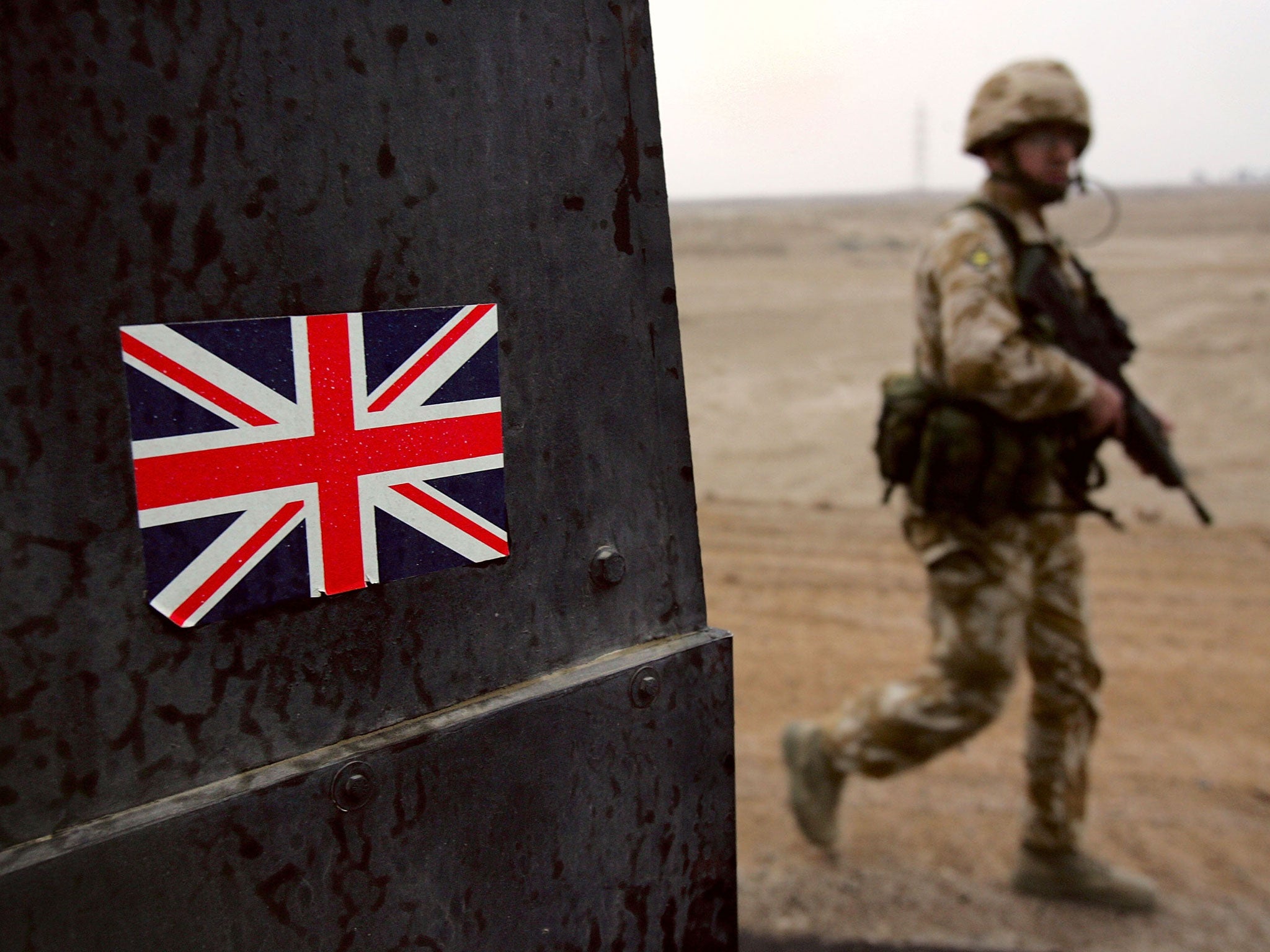Plans to double number of army reserves will create ‘surge in mental health problems’
Charities say members of the TA are twice as likely to suffer from post-traumatic stress disorder than soldiers in the regular forces

Your support helps us to tell the story
From reproductive rights to climate change to Big Tech, The Independent is on the ground when the story is developing. Whether it's investigating the financials of Elon Musk's pro-Trump PAC or producing our latest documentary, 'The A Word', which shines a light on the American women fighting for reproductive rights, we know how important it is to parse out the facts from the messaging.
At such a critical moment in US history, we need reporters on the ground. Your donation allows us to keep sending journalists to speak to both sides of the story.
The Independent is trusted by Americans across the entire political spectrum. And unlike many other quality news outlets, we choose not to lock Americans out of our reporting and analysis with paywalls. We believe quality journalism should be available to everyone, paid for by those who can afford it.
Your support makes all the difference.Government plans to replace sacked full-time soldiers with reservists could create a new wave of former servicemen who need treatment for post-traumatic stress disorder (PTSD), mental health campaigners have warned.
Members of the Territorial Army are twice as likely to suffer from PTSD as regular soldiers, research has shown, because they lack the equivalent long-term support structures.
The chief executive of Combat Stress, Andrew Cameron, told Sky News: “The preponderance of post-traumatic stress disorder amongst veterans who are reservists is 50 per cent higher than it is for regular servicemen.
“The reason for that is they don't get the level of support from their regiment, their ship or their squadron that they might have done if they were a regular.
“If we double or treble the number and if we continue with high-intensity warfare then I think society has got a big challenge because we will see a lot more reservists who need help.”
Combat Stress is formally known as the Ex-Services Mental Welfare Society, set up in 1919 to deal with the sudden and widespread problem of shell shock among veterans of the First World War.
The charity has spoken out ahead of the implementation of Government plans to cut the number of full-time troops from 100,000 to 82,000 by 2020, replacing them by doubling the size of the Territorial Army from 15,000 to 30,000.
Jake Wood, 40, an investment bank analyst who served as a reservist in Afghanistan from April to October 2007, spoke to Sky News about his experiences.
“I didn't feel anything at the time. I couldn't. I was immersed in the normality of Afghanistan,” he said.
“But it's when you come home and you're re-immersed in the different normality of home, the cosiness of home life, that you can remember things differently.
“And I just remember playing my part in killing an extremely terrified, dying man.”
Mr Wood said he remembered hearing an intercepted radio broadcast of a screaming Taliban militant, who died after he was shot by the reservist’s unit.
Accompanying that “killer guilt”, he says he also suffers from “survivor guilt” after his commanding officer was blown up close to where Mr Wood was standing.
“As a soldier on the ground, you look after the guy next to you and he looks after you. It's a cliché but it's a cliché for a reason because it's what happens.
“Then when you're suddenly re-immersed in an investment bank after just a few weeks leave, there can be this profound sense of sudden isolation, and also alienation as well, where you're just completely and utterly alone.
“I've had years of intensive treatment and I've no doubt it has helped me, and the reason I know it has helped me is that I haven't killed myself.”
A recent study by Kings College London has found that 6 per cent of reservists are diagnosed with PTSD, compared to about 4 per cent of regular soldiers. Mental health charities also said that those figures don’t account for those who have left service, or who are getting by with lesser symptoms.
The Ministry of Defence will tomorrow release new figures regarding the number of servicemen suffering from mental health conditions.
Join our commenting forum
Join thought-provoking conversations, follow other Independent readers and see their replies
Comments